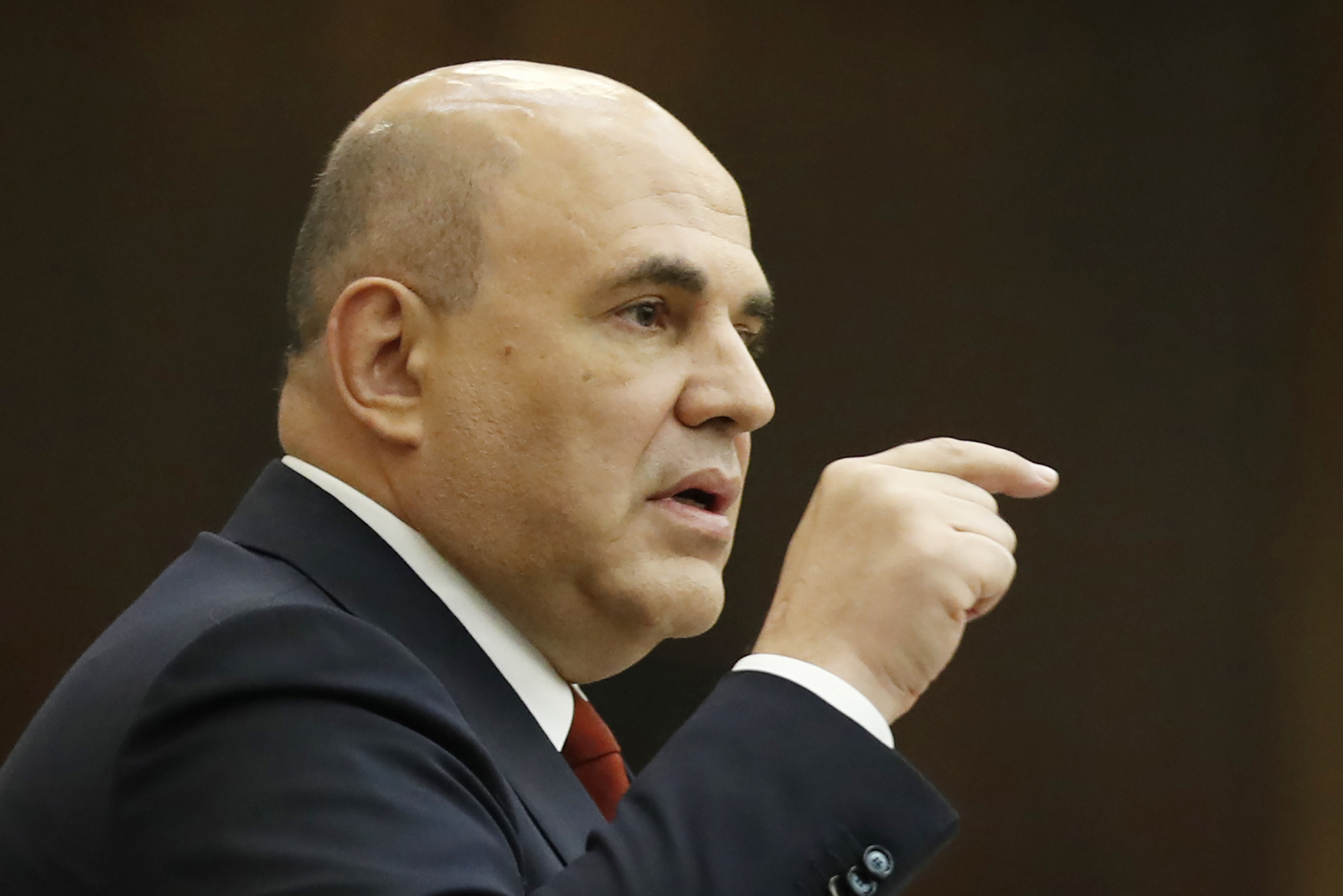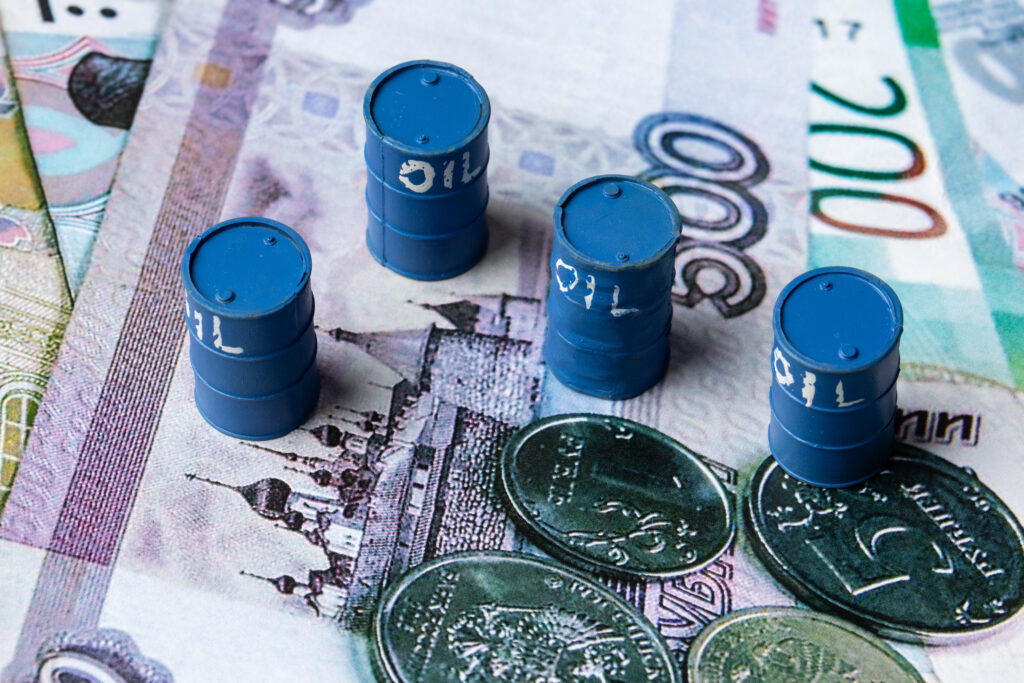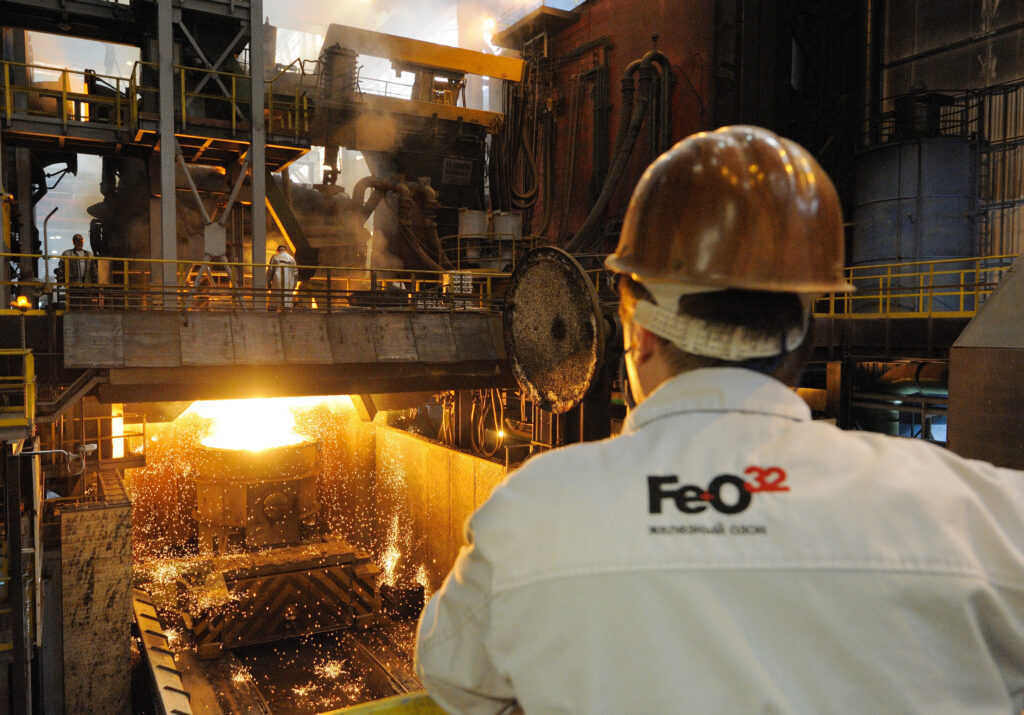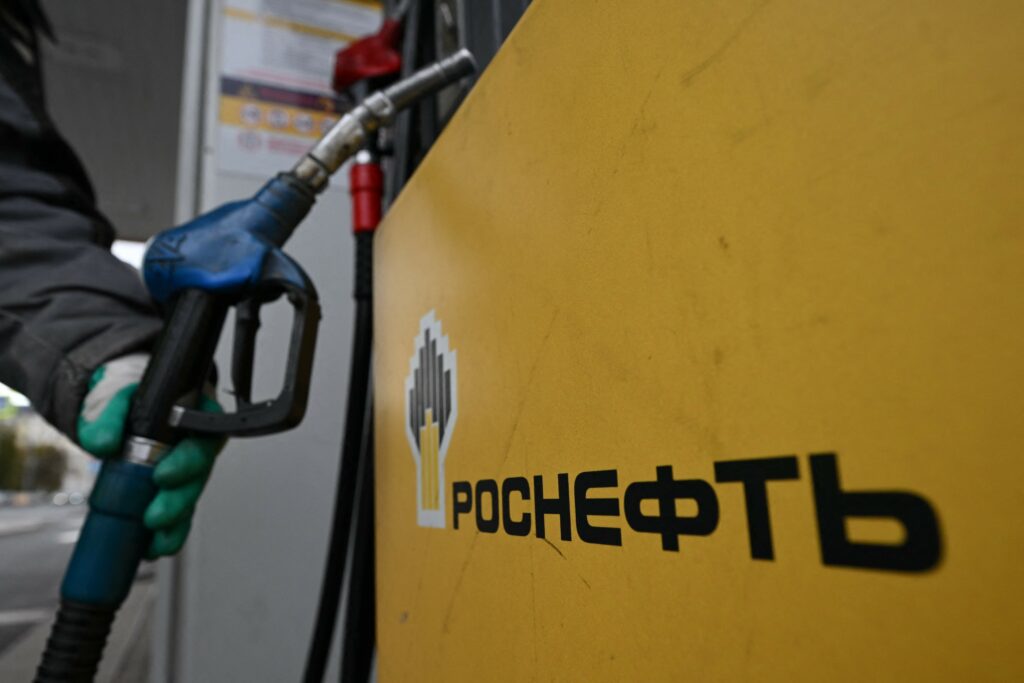It became plain late last year that prices for food and basic goods were shooting up without much relief for low income Russian families. In response, prime minister Mikhail Mishustin had one task: knock the heads of his cabinet together and do something. “I want to remind you of your direct duties,” he said. “We see that there isn’t actually a deficit of goods. Enough is being produced to meet consumer demand.”
Except that there was a deficit. Similarly ignoring that reality, Vladimir Putin expressed this attitude at his end of year press conference. “When [inflation] is not connected to objective circumstances, it can’t but call for a strong reaction.”
That strong reaction has been weak so far. Run by prime minister Mikhail Mishustin and managed through his new ‘coordination center’ in the government, it has not done the trick. Shifting bans or export quotas for foodstuffs, benzine, and metal products; the creation of a de facto state monopoly on sugar imports; and pricing agreements negotiated between food producers and retailers. All three of these initiatives have done little to arrest rising inflation levels.
Housing prices continue to climb due to the subsidy mortgage program from last year’s COVID measures. Metal prices keep rising. There’s also a lack of cheap labor due to COVID-related migration controls that is still driving up prices. These price hikes are coming amid worsening income declines. Rosstat calculates that real disposable incomes fell a whopping 3.6% in 1Q alone. The Russian state lacks the capacity to address the crisis Mishustin is now responsible for fixing ‘manually’. But what’s bizarre is that much of this incapacity is a choice.
Fiscal Incapacity
COVID exposed how many economic constraints Mishustin grapples with are self-imposed. Debt levels rose by 39.9% last year, reaching nearly 19 trillion rubles. That still left them at a lowly 17.9%. There are also indications that as much as two-thirds of the Russian bonds bought by foreign investors last year were actually state banks using foreign subsidiaries. Russia’s sovereign debt is mostly held in Russia. The rest of its external debt held privately accounts for roughly another 15%. Domestically-financed sovereign debt expansions pose little inflation or default risk so long as the Central Bank is seen as credible and slack remains across the economy.
Instead of hiking spending to jumpstart new growth, Moscow has returned to fiscal consolidation. The short-term economic measures announced at Putin’s federal address were confined to social spending promises parceled out as one-off or monthly payments to support families with school-aged children, pregnant women, or single parents. The direct payments measures are expected to cost just 400 billion rubles in total, less than the 600 billion rubles that Russian households burned through in 1Q this year. They’re worth just 0.4% of households’ disposable income in 2019, devaluing rapidly due to inflation, and the one-off 10,000 ruble payment to households with school-aged children won’t even go out till August. Mishustin is trapped by the ‘fiscal straitjacket’ mandated by the regime’s economic consensus. Spending plans intended to offset falling incomes and inflation must be limited to the most pressing social priorities, low-cost, and have minimal macroeconomic effect. No one can propose too large an expansion of state spending because it reinforces fears of inflation.
Inflation and Hydraulic Austerity
These fears reflect a faulty understanding of inflation in Russia right now. According to deputy finance minister Vladimir Kolychev, rising inflation levels reflect a faster than expected recovery and suggest budgetary stimulus has been too large. The idea now is to tighten spending faster than planned last year to rein in inflation. But this is absurd. Incomes have fallen since the pandemic began. The economic recovery has been driven most strongly by rising prices for commodity exports, slowly rising oil output, and a recovery for Russia’s current account surplus. These benefit Russia’s exporting sectors, but the price increases feed into the rest of the economy. For instance, food price inflation has nothing to do with stimulus being too large. Demand for food hasn’t somehow changed in the last 15 months. Yet as of March, food price inflation was 7.5 times greater in Russia officially than in the EU, where relative spending levels have been considerably higher.
The poorer Russians have become since 2013, the more commodity-intensive their consumption. The result is that as Russians become poorer, the relative impact of price fluctuations for food, construction materials, and fuel on their spending power has grown. The more sensitive the regime becomes to inflation fears, the more inclined it is to pull back spending and reimpose austerity measures. The result is a constant shortage of demand in the Russian economy as the budget and economy’s dependence on resource exports continues.
Improper understanding of inflation is a political choice. It reinforces the central role of the state in driving investment and distributing resources due to the scarcity created by Russian macroeconomic governance. The lack of growth in Russia worsens rent-seeking across the economy because firms and sectors can only achieve it through state largesse. Economic policy, therefore, hydraulically applies austerity measures whenever inflation rises in the mistaken hopes of controlling it, only to force households to borrow more and spend less each time while forcing firms and business lobbies to fight harder for state support. The result puts yet more stress on state resources to create rents, one of the core functions of counter-sanctions and import substitution efforts.
The Loss of Manual Control
Mishustin’s challenge – to create the illusion of a proactive economic policy– is hostage to this macroeconomic policy consensus. It renders these attempts to apply ‘manual control’ via pricing agreements or export bans largely fruitless, akin to a lever without a fulcrum. Since Mishustin can’t propose more spending, the best he can do is seek to redistribute rents through institutional reforms – the development institutes in this case – while trying to stretch the budget as far as possible. ‘Manual control’ over the type of inflation now seen in Russia is, for the most part, impossible and shows that economic policy has become performative and targeted entirely at elites.
Mishustin’s speech before the Duma on May 12 included accusations that producers and retail chains are raising prices out of greed. Setting aside that price controls are potentially creating deficits of goods, the state is now blaming businesses for the failures of its policy response. This charge paralleled a section of his speech calling for increased taxes on businesses and wealthy Russians as compensation for their greed. Manual control has proven useless at resolving inflation because it can’t stop global prices from affecting domestic ones, so instead the government is threatening businesses with higher tax rates. Populist tax promises are clearly about disciplining someone for the state’s failure. No major spending announcement was made in tandem with them.
Now that the government officials at different levels are beginning to use the Soviet-era calls to punish ‘speculators’ for driving up prices, manual control is failing. The more impotent policy measures intended to control inflation appear to be, the more pressure there is to find political means of deflecting criticism and coercing businesses and elites to meet the regime’s needs. That Mishustin told the Duma real incomes actually increased 3% for 2020 reveals how desperate the government is to paint a better picture manipulating data rather than proposing bigger changes. The regime’s self-imposed constraints are now limiting its ability to mobilize public and private resources to address the current crisis, forcing the government to lay groundwork for a renegotiation of the relationship between the state and businesses. Invest more and accept losses when we need, or else face higher taxes, less protection from expropriation, and less or no support from the budget.
Mishustin is promising to help every other family and a return to growth. He knows neither will be adequate in the current circumstances but maintaining the appearance that the state is doing something still matters. The lack of capacity to address economic problems has created a self-reinforcing loop in search of stability. Every failure of manual control strengthens the political logic of using yet more of it to control or coerce necessary outcomes in the absence of state spending and capacity. The contradictions between the macroeconomic orthodoxy of Putinism and its real effects on the economy and politics have led to a prolonged cycle of stagflation. When the West experienced this combination of stagnant demand and higher inflation levels in the 1970s, it fostered the intellectual revolution that created the neoliberal orthodoxy Russian policymakers have largely adopted when it comes to macroeconomic governance. The effects of the Global Financial Crisis and COVID have spurred a reconsideration of these assumptions in the United States and Europe, but not in Russia. Mishustin and the government are trapped by an outdated consensus that serves the political priorities of the Kremlin – maintaining reserves and the power to distribute financial resources at all costs regardless of the worsening damage to the economy and the public.










